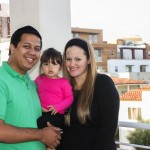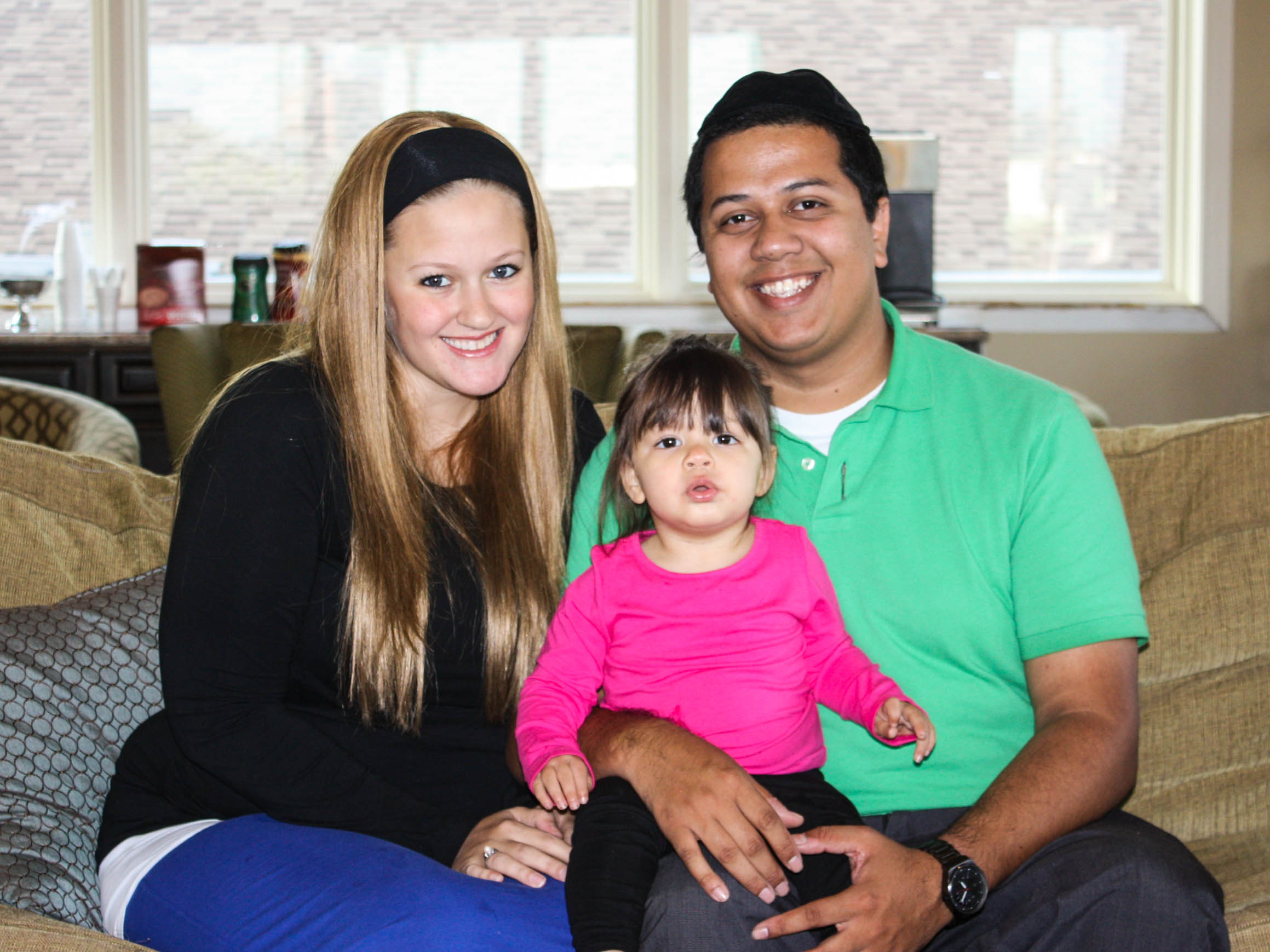It’s a rainy day, which, aside from forcing all of the umbrellas and slightly warmer jackets out from the back of students’ closets, signals another change in the UCLA landscape: endless lines at Kerckhoff Coffee House. Eager caffeine addicts and warm beverage connoisseurs spill out into the hallway on the second floor of Kerckhoff, chatting with friends or looking down at their phones. Toward the middle of the line, Rabbi Moshe Nachbar, the Jewish Awareness Movement’s newest rabbi, finds himself scrolling through texts on his phone, coordinating with students about where to meet in the dreary weather.
As he shuffles to the front of the line, he runs into Rabbi Jacob Rupp, the senior JAM rabbi, and the two banter like old friends. When the barista calls Rabbi Nachbar’s name, he turns around, almost knocking the coffee from Rabbi Rupp’s idle fingers.
“How funny would that have been?” Rabbi Rupp mocks, pushing Rabbi Nachbar around slightly. Even with their wives and children, the young rabbis fit right in with the college campus atmosphere.
“I was adopted when I was 6 months old — I was born actually in South America, and I grew up in Philly as an only child, so I have all of that going. To this day, I’m the oldest, middle and youngest child in my family,” Rabbi Nachbar says with a smile, settling into the Ha’Am office.
He was raised with Orthodox Jewish values but only became active in his Judaism when he attended yeshiva in Israel.
“Up until that point, I was very much apathetic and very ‘go through the motions,’ I guess you would call it,” Rabbi Nachbar remembers. “That was up until I was in Israel and in an environment where rabbis are accessible in a way that I had never before experienced. And they lived very close to me and I became very close with them, and the whole culture of being in an environment like that really spoke to me. It really did set a fire that I never experienced before.”
When asked to describe himself, Rabbi Nachbar admits, “I have a very big appreciation for a sense of humor. I try to make things light and keep them light in a very healthy way, without forgoing serious topics.”
He is also a huge sports fan and still supports all of his Philadelphia teams, including the Eagles, Phillies and 76ers.
“It’s actually funny: my favorite basketball player was Kobe Bryant, so it’s pretty appropriate that I’m living in LA now. I’m dying to go to a Clippers game. They used to be terrible and I thought they needed some love.” As Rabbi Nachbar finishes his sentence, his phone dings, alerting him to another student vying for his attention. Rabbi Nachbar apologizes, insisting that he is not the type of guy who sits on his phone while talking to someone else.

The Nachbars — Rabbi Nachbar, wife Shira and one-and-a-half-year-old daughter Zahava — moved to LA in order to work for JAM, although they hope to move back to Israel in the future. Shira and Moshe Nachbar met in Israel when they were working as madricha and madrich (counselors) for their respective Jewish learning institutions. They both attended college in the US before ultimately deciding that they wanted to study in Israel and learn more about Jewish education.
“She’s great,” Rabbi Nachbar comments about his wife, positively beaming. His phone rings again, this time to inform him that the Nachbars’ shipment from Israel has finally arrived — after three long months.
“I haven’t had any of my books until today. They’ve been in transit for three months, so I’m very excited about books arriving. I also play guitar — I’ve been playing for over a decade, but the guitar has also been in shipment,” Rabbi Nachbar explains while simultaneously attempting to coordinate the arrival of his long-awaited packages.
Once back in the conversation, Rabbi Nachbar continues, “Working for JAM is awesome, I really enjoy it. I get to meet a lot of new students with a lot of different backgrounds, which is really exciting. Living right off campus has been an added plus, not so much for the noise level at nights — that is certainly a minus,” Rabbi Nachbar adds with a laugh.
In the future, Rabbi Nachbar hopes to bring Shabbat Chills to JAM, where students are welcome to hang out in the JAM center all day, eating cholent (traditional slow-cooked Shabbat stew) and relaxing. He also plans to host social events, such as a 3-on-3 basketball tournament or a bone marrow drive. “Rabbi Rupp and I are constantly thinking of new ideas. We either say that ‘it’s good,’ or ‘that’s terrible; go to sleep.’ There’s always something to be doing.”
After a momentary pause to contemplate programming ideas, Rabbi Nachbar exclaims, “Battle of the bands — there it is, right now!“
“If there’s one life motto that I live by,” Rabbi Nachbar says, juggling his ringing phone in one hand and his lukewarm café latte in the other, “it’s ‘Try to understand where the other person is coming from, not to judge people based on their experience.’ Everyone comes from a very valid place, and to hear where they’re coming from and to be able to not be upset with someone and to be really accepting is something I try to live by. Not necessarily take a walk in their shoes, because I can’t have their life experience, but to understand where they’re coming from, to relate to them, to be able to talk to them on a personal level, as a friend, as a rabbi, and as a teacher.”
With these words, Rabbi Nachbar departs the Ha’Am office, returning to his waiting family and long-lost furniture, in preparation for his new life at JAM.
Rabbi Nachbar is
available to learn and study with interested students. E-mail him at [email protected] or call and text him
at (323) 627-1492.

